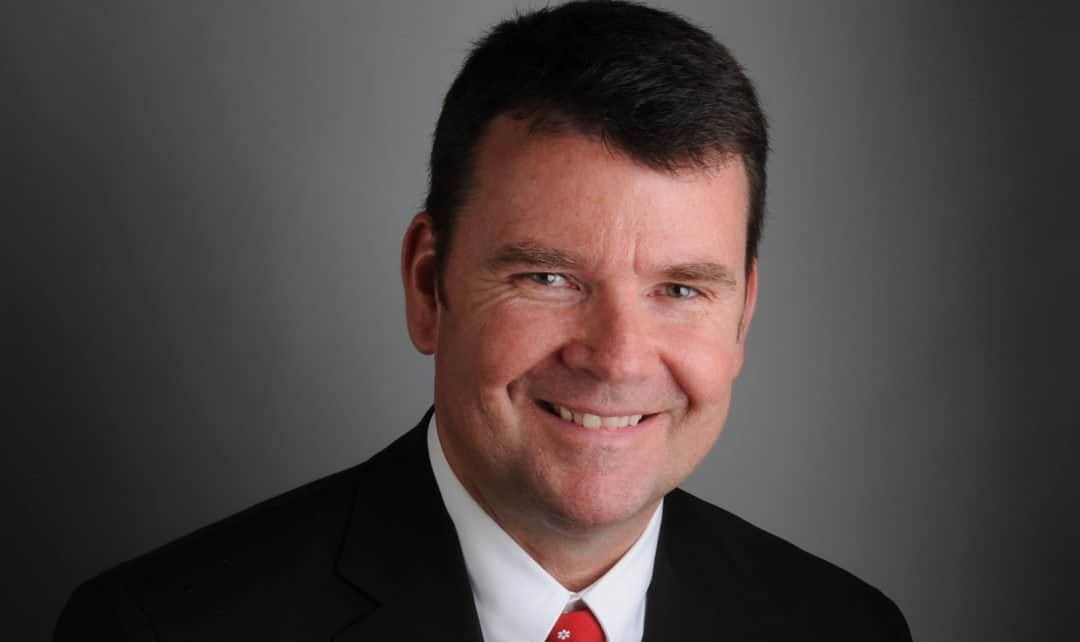Michael Bourque, CEO of the Canadian Real Estate Association, doesn’t like the term “organized real estate”. He says the staff at CREA’s Ottawa offices no longer use it, because they know he doesn’t like it.
“You’ve got organized labour and organized crime and I don’t want to be associated with either of them,” he says with a grin.
A former president and CEO of the Railway Association of Canada and VP of external relations for the Chemical Industry Association of Canada, Bourque says he considers himself an employee of the real estate industry. When he started the job at the beginning of 2018, a big issue was the Three-Way Agreement – the interaction between local boards, provincial associations and CREA – which led to a vote allowing boards to bypass their provincial associations and apply for direct membership in CREA.
“I think people have been trying to change things, so we could react quicker and be more responsive to the marketplace, which is changing rapidly,” he says. “But I’m not interested in having an inward focus – I’m interested in how we can serve our members.”
Bourque’s brother Paul has been selling real estate for 38 years. “He’s an absolute classic Realtor – a real people person, a big-hearted person who would do anything for you, like so many in this industry. But he doesn’t know anything about the difference between CREA and OREA and the boards. He has enough knowledge to operate but if you talk to many of these guys, they don’t care about that. They don’t know what their dues are. They just want us to do our jobs.”
His job, says Bourque, is to deal with the many changes happening in the industry. “My perception is that on any number of issues, they want us to lead the change. They don’t want to resist change,” he says.
“We have almost 129,000 members out there now and there are a variety of challenges in terms of new business models, new technologies and an immense amount of new capital coming into the industry. At the end of the day, the relevance of the Realtor is a constant and our job is to ensure it remains a constant and that we maintain this co-operative business model we have.”
He adds: “It starts with the Realtor. A listing goes on the MLS, and our job is to make sure that their listing through Realtor.ca is seen by as many people as possible, that all the information they need is there and that the inquiry for that listing goes back to that Realtor. That it isn’t intercepted and resold or repackaged to someone else.”
Bourque says that Realtor.ca is his No. 1 priority. Noting that many well-funded companies are setting up real estate advertising sites online, he says CREA can compete by partnering with other brands, such as Kijiji, via the CREA Data Distribution Facility.
He also points to a partnership with TD bank. When consumers use its affordability calculator, it suggests three listings from Realtor.ca that are within the parameters of the price and neighbourhood entered by the user. “So, people might start their homebuyer journey by going to the bank, and then they are coming back to Realtor.ca and that lead is going to a Realtor as a qualified lead,” says Bourque.
“Over the next several months, we will bring in new partners. Where we are lacking in capital ourselves, we’re bringing in partners that are well capitalized and big brands that have enormous public appeal. That adds a lot of value to the Realtor and leads the consumer back to Realtor.ca.”
Bourque’s No. 2 priority is advocacy. He has been involved in government relations since he began his career working on Parliament Hill during the Brian Mulroney years.
“There is one thing we do better than anyone else,” he says. That’s the PAC Days that are held annually in Ottawa, when Realtors visit their MPs. Having Realtors in every riding in the country is a big advantage for the industry, Bourque says. “We do a very good job bringing Realtors together with MPs as a tactic,” he says.
“Where we need to do better is on the other 360 days of the year, making connections with other important decision makers – particularly in the bureaucracy. We need to advocate for homeowners – buyers and sellers – and not just be advocates for Realtors. It’s an important part of what we should be doing and gives us credibility.”
The No. 3 priority for Bourque is reputation. “The Realtor word was invented 120 years ago to differentiate shysters that were selling land with no title on street corners from professional property traders,” he says. “And 120 years later we are still working to differentiate a Realtor from somebody who is operating in an ethics vacuum outside the rules.”
Bourque says one of the most important things that members want from CREA is “to make sure we get rid of the bad apples, that we protect the reputation, that we set the bar higher. We have a number of initiatives underway to try and improve the reputation and it starts with having a strong Realtor Code that’s rooted in the brand and the trademark.
“Then, if somebody is not exhibiting the attributes of what we consider to be a Realtor, which is a professional who has integrity, who has expertise, who offers a high degree of customer service, then they won’t be able to be a Realtor. It doesn’t mean they won’t be a sales agent somewhere, but they won’t be wearing our brand.”
Jim Adair is the Founding Editor of REM Real Estate Magazine. Jim retired in 2022, after 33 years at the helm.












